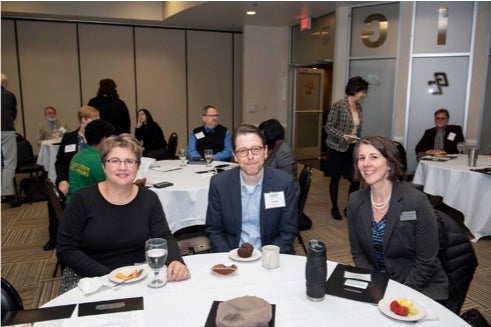Asbury Faculty attends higher education leadership academy
Published 12:01 pm Wednesday, November 21, 2018
From staff reports
Three Asbury University faculty members recently completed the fifth annual Bluegrass Higher Education Consortium Academic Leadership Academy.
The Academic Leadership Academy is the joint effort of 12 university presidents in Kentucky and seeks to build and encourage future academic leaders in the Bluegrass region.
Bluegrass Higher Education Consortium and the Academic Leadership Academy are both managed by Bluegrass Tomorrow.
This year, 32 fellows from across the state completed the program, learning leadership skills as well as the ins and outs of a career in institutional leadership.
Over the last five years, 207 university employees from across the state have completed the program.
Fellows from Asbury included Dr. Sarah Bellew, bachelor of social work program director; Dr. Sharon Bixler, assistant professor of education; and Dr. Kirk Sims, assistant professor of christian mission.
These faculty members participated in two full days of training and leadership development, hearing keynote speeches from university presidents, vice presidents, provosts, deans and other university leaders. They also take part in workshops and panels in addition to presenting a research project.
“It was an honor to be a voice for what is going on at Asbury,” Sims said. “I appreciated attending this event with colleagues from other departments. We were able to collectively step back and look at some of the bigger picture issues our university is facing.”
Sims, who has had previous leadership experiences, said he was glad for the chance to discuss how he can transfer those experiences to an academic context.
“As someone who came to Asbury with previous professional experiences in the church and mission worlds, many of the leadership principles were not new to me,” Sims said. “However, my most significant takeaways are in terms of how to talk about them and apply them in academic contexts.”


